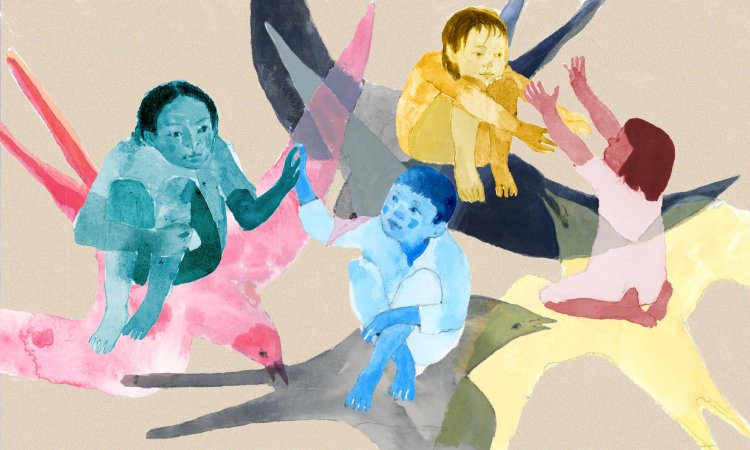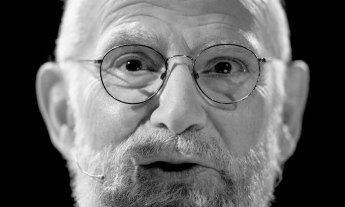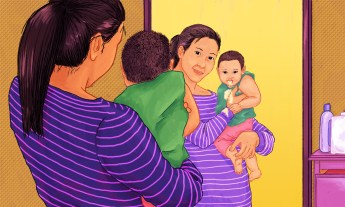
We can do so with careful planning, recovering the ideals of compassion, peace and equity, and standing together in the face of hate, says Rabbi Lord Jonathan Sacks.
Life, down here on earth, is holy. It is also exceptionally fragile. It is hevel, a Hebrew word meaning a mere breath. Almost in his last words, Moses tells his people, “I call heaven and earth to witness against you today that I have set life and death, blessing and curse, before you. Therefore choose life so that you and your descendants may live!” (Deut. 30:19).
Murder in pursuit of power while invoking the name of God is sacrilege, whoever does it, whoever the victim, whatever the faith. That drama is still being enacted today in Syria, Iraq, Afghanistan, Nigeria, Somalia, Libya and in acts of terror around the world. What drives ISIS and its kindred organizations is the restoration of the Caliphate and the return to its rule of all the lands it once controlled, from Israel to Spain. These are political objectives. They have nothing to do with the God of Abraham. God does not accept human sacrifice. God does not sanctify the will to power. When religion turns men into murderers, God replies: “The voice of your brother’s blood is crying to me from the ground.” What then will happen if we do nothing directly to confront the ideology that has led in our time to barbarism and bloodshed?
Demographically, the religious will inherit the world.
First, the world will be more religious a generation from now, not less. This will be so even if religion fails to convert a single soul — it has to do with demography. The more religious people are, the more children they have. The more secular they are, the fewer children they have. The indigenous populations of Europe, the most secular continent on earth, are committing long, slow suicide. Their below-replacement birth rates mean that they will get older and fewer. Demographically, the religious will inherit the earth.
Within religion, the most extreme, anti-modern or anti-Western movements will prevail. This is happening in Judaism, Christianity and Islam. The old marriage of religion and culture has ended in divorce. Today the secular West has largely lost the values that used to be called the Judeo-Christian heritage. Instead it has chosen to worship the idols of the self — the market, consumerism, individualism, autonomy, rights and “whatever works for you” — while relinquishing the codes of loyalty, reverence and respect that once preserved marriages, communities and the subtle bonds that tie us to one another, moving us to work for the common good.
Altruism misdirected can lead to evil.
In losing its religious faith, the West is beginning to lose the ideals that once made it inspiring to the altruistic: reverence, loyalty, human dignity, the relief of poverty, public service, collective responsibility and respect for religious values. At the same time, it’s made space for liberty of conscience and the peaceable co-existence of more than one faith. Today Western politics often seem bereft of vision beyond the mantra of “freedom and democracy” and cost-benefit calculations of maximum services for the minimum of tax. Faced with a culture of individualism and hedonism, it is not surprising that young radicals, eager to change the world, turn elsewhere to express their altruism, even if it involves acts that are brutal and barbaric. “The act of self-denial seems to confer on us the right to be harsh and merciless toward others,” said philosopher Eric Hoffer in The True Believer. Altruism misdirected can lead to evil. And that is why the West must recover its ideals.
In a world of relativism, what talks is power. In that sense, the Islamist is a faithful child of the 21st century. He or she knows that what makes the West sit up and take notice is the brute assertion of force. The West has often had no serious response to religiously motivated violence beyond ridicule and crude assaults on religion as such. It was a great sage of Islam, ibn Khaldun (1332–1406), who saw that as a society becomes affluent it becomes more individualistic. It loses what he called its asabiyah, its social cohesion. It then becomes prey to the “desert dwellers,” those who shun the luxuries of the city and are prepared for self-sacrifice in war.
One of the most uplifting stories in the religious history of humankind is the changed relationship between Jews and Christians after the Holocaust.
The West, indeed the world, has never faced a challenge quite like this. Against it stands a movement more like a series of flash-mobs than a nation or a coalition, groups that can form, dissolve and reform almost at will. None of the normal conventions of war apply: uniforms distinguishing combatants from non-combatants, or rules like those of the Geneva Conventions that constrain the cruelties that may be practiced in the name of humanity. Indeed, the radicals pride themselves on their inhumanity. They have no qualms against butchering and beheading those with whom they disagree, using civilians as human shields, turning people into slaves and ten-year-old girls into suicide bombers.
Can the world be changed? The answer is yes. The proof is one of the most uplifting stories in the religious history of humankind: the changed relationship between Jews and Christians after the Holocaust. Here there are many heroes, Christians of moral courage, deep faith and surpassing humanity who realized that, after that terrible denouement, something must change. Among these, special praise must go to a series of popes: John XXIII who began the process leading to Vatican II and Nostra Aetate, Paul VI who completed it, and John Paul II and Benedict XVI, both of whom continued it in their own way.
And then there is the current Pope, Francis I. On 12 September 2013, in an open letter to the editor of an Italian newspaper, La Repubblica, he wrote, “God’s fidelity to the close covenant with Israel never failed, and . . . through the terrible trials of these centuries, the Jews have kept their faith in God. And for this we shall never be sufficiently grateful to them as Church but also as humanity.” This may be the first time that a pope has publicly recognized that in staying true to their faith, Jews were being loyal to God, not faithless to him. That is a statement capable of changing the world. The Church, in the West, has begun to overcome its sibling rivalry with Judaism. If it can happen between Christians and Jews, it can happen between them and Islam also.
We must put the same long-term planning into strengthening religious freedom as was put into the spread of religious extremism.
The real clash of the twenty-first century will not be between civilizations or religions, but within them. What then must we do? We must put the same long-term planning into strengthening religious freedom as was put into the spread of religious extremism, and train a generation of religious leaders and educators who embrace the world in its diversity and sacred texts in their maximal generosity. There must also be an international campaign against the teaching and preaching of hate, both through education and legislation. If children continue to be taught that non-believers are destined for hell and that Christians and Jews are the greater and lesser Satan, if radio, TV, websites and social media pour out a nonstop stream of paranoia and incitement, then Article 18 of the Universal Declaration of Human Rights with its commitment to religious freedom will mean nothing. All the military interventions in the world will not stop the violence.
Next, we need to recover the absolute values that make Abrahamic monotheism the humanizing force it has been at its best. These values include the sanctity of life, the dignity of the individual, the twin imperatives of justice and compassion, the moral responsibility of the rich for the poor, the commands to love the neighbor and stranger, the insistence on peaceful modes of conflict resolution and respectful listening to the other side, forgiving the injuries of the past and focusing instead on building a future in which the children of the world can live together in grace and peace. These are the ideals on which Jews, Christians and Muslims can converge, widening their embrace to include those of other faiths and of none. This does not mean that human nature will change, or that politics will cease to be an arena of conflict. All it means is that politics will remain politics, and not become religion.
Finally, we need also to insist on the simplest moral principle of all, the principle of reciprocal altruism, otherwise known as Tit-for-Tat. This says: as you behave to others, so will others behave to you. If you seek respect, you must give respect. If you ask for tolerance, you must demonstrate tolerance. If you wish not to be offended, then you must make sure you do not offend. This principle alone, properly applied, would have banned at the outset the preachers-of-hate who radicalized so many impressionable minds in the West.
No soul was ever saved by hate. No truth was ever proved by violence. No redemption was ever brought by holy war. No religion won the admiration of the world by its capacity to inflict suffering on its enemies. Despite the fact that these things have been endorsed in their time by sincere religious believers, they are a travesty of faith, and until we learn this, religion will remain one of the great threats to the peace of the world. Today God is calling us, Jew, Christian and Muslim, to let go of hate and the preaching of hate, and live at last as brothers and sisters, true to our faith and a blessing to others regardless of their faith, honoring his name by honoring his image, humankind.
Excerpted from the book Not in God’s Name: Confronting Religious Violence by Rabbi Jonathan Sacks. Published by arrangement with Schocken Books, an imprint of the Knopf Doubleday Publishing Group, a division of PenguinRandom House LLC. © 2015 Jonathan Sacks.
Editor’s note: Rabbi Lord Jonathan Sacks passed away on November 7, 2020. You can watch his TED Talk here:














